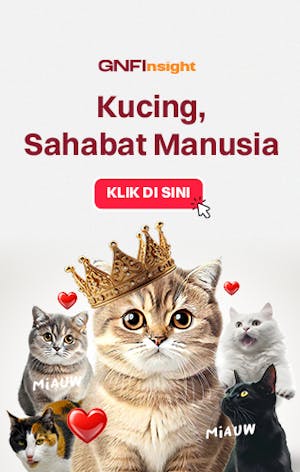If Steve Jobs were asked which country in the world most resembled Apple, he might point to Indonesia. And if Jobs had to create a global brand around this much-misunderstood country, he would most likely launch it as Apple’s new “iBRIC.” If you were to tell Jobs to ease-off the California Kool-aid, that Indonesia’s economy can’t compare in size to the likes of Brazil, Russia, India or China, he would reply that, yes, like his beloved Apple battling the goliath Microsoft, Indonesia could be perceived as “vertically challenged.” But then again, Jobs knows, like his Apple followers, that size doesn’t matter. Jobs also knows the importance of youth, both as a market and as a source of great ideas inside his company. On that score alone, Jobs would love Indonesia. Unlike China or Russia, Indonesia’s population is not greying. More than half of Indonesians are under the age of 30, and they are becoming better educated and more affluent. They are hip, they know what’s hot and what’s not, and they have an insatiable appetite for the latest technologies and newest ideas. What’s equally important is that you are unlikely to ever catch the Indonesian government playing Chinese censorship games with Google or choking its free press with a Russian bear hug. Although youth and hipness are closely aligned with Apple, the company would be nowhere without its built-in flexibility and ingenuity. Take Jobs’ most famous creation, the iPod. A German company developed the MP3 technology, Compaq introduced the first hard drive-based MP3 player, and Jobs went calmly back to his headquarters and told his people to reverse engineer it and then apply Apple’s design and marketing genius to create a killer product. The rest is history. Well, Mr Jobs, if you want to find a match for your DNA that thrives on ingenuity and flexibility, come to Indonesia. For those who know the country, it is no secret that Indonesia excels at out-of-the-box thinking. It has a long history of assimilating foreign cultures and ideas, and then shaping them in a uniquely Indonesian way. Being open to other cultures, taking foreign ideas and profiting from them is, of course, a common trait among heterogeneous societies. Indonesia is a unique and complex potpourri of over 300 ethnic groups speaking 600 indigenous languages with a rich history of Chinese, Indian, Arabic and European influences. It is a living, breathing laboratory of diversity in motion, quite the opposite of more homogenous societies where conformity is the norm, such as China. If you are not quite convinced that Indonesia should be considered the Apple of emerging markets and hence deserving of our new iBRIC acronym, consider this: Besides its youth and ingenuity, Indonesia shares another important trait with Apple that provides it with a competitive edge — open architecture. When you think about the potential for new and innovative business in Indonesia, the real beauty of the country lies in the fact that so much needs to be done. All that remains is for new applications to be plugged in. As one example, take clean technologies. Because only half of the archipelago is electrified and only one-third of Indonesians have access to potable water, Indonesia is ideally suited for the deployment of scalable and widely distributed clean technologies that already exist but are searching for markets where there are no switching costs or issues with economies of scale. Alternative energy, like Intelligent Energy’s fuel-cell powered systems, might make little sense in electrifying US suburbs, but among Indonesia’s 14,000 islands, where deployment of conventional power grids can be extraordinarily expensive, using these distributive, clean and scalable technologies would make perfect sense. Similarly, the Indonesian state-owned water company finds it uneconomical to develop public water facilities in small and isolated regions with low-density populations, such as Papua and the Malukus. But right now in the United States there are companies with atmospheric water technologies that have the potential to provide potable water for an entire village at a fraction of the cost it would take otherwise. But clean technologies are not the only cool and hip industries that have the potential to thrive in Indonesia. If you have ever watched Indonesians at work in the visual and performing arts in places like Bali, Yogyakarta and Jakarta, then you will understand that the country has a tremendous reserve of creativity and artistic talent. There’s no reason for Indonesia not to have its own Baliwood for film, for more of its artists to display their works at international galleries and auction houses or for more of its fashion designers to parade their creations on international catwalks. Eco-tourism is another hip industry that has great potential for Indonesia. Boasting the world’s largest diversity of flora and fauna, home to more than 75 percent of the world’s active volcanoes and the most pristine coral reef gardens to be found anywhere, there are endless possibilities for Indonesia to emerge as a world-class eco-tourist destination for those wanting to experience natural beauty that can’t be found on display at the local mall. It took Jobs and Apple 33 years to establish a unique reputation and a customer base that is devoted to the company and its brand. Fortune magazine recently named Apple the most admired company in the world for a third straight year. No small feat when compared to the larger and more established goliaths. We see no reason why Indonesia cannot do the same. James Van Zorge and Edward Gustely have more than 40 years of combined experience in Indonesia as senior investment and economic advisers to governments, companies and fund managers. They can be contacted at jamesvanzorge@yahoo.com. Source: The Jakarta Globe
Cek berita, artikel, dan konten yang lain di Google News














